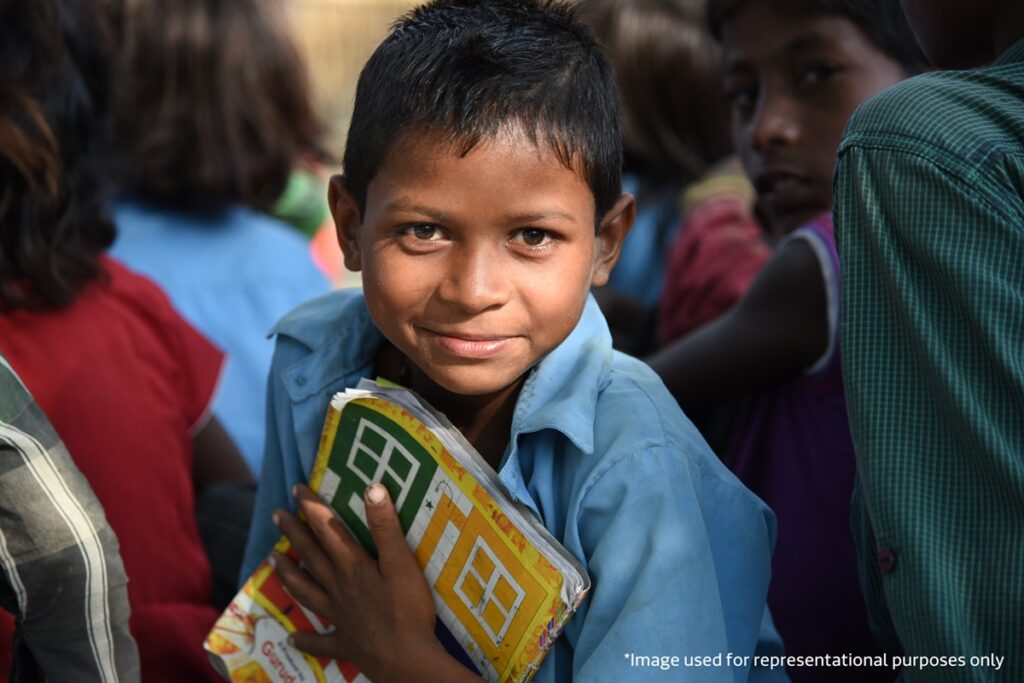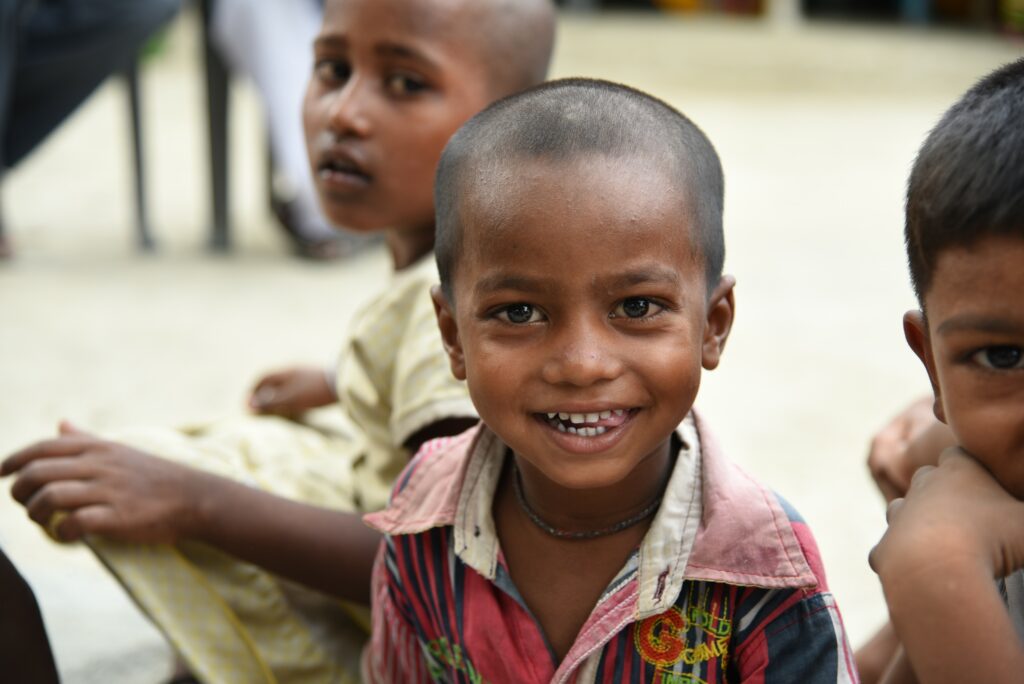
Emotional Development in Children’s Growth: Meaning, Importance and Stages
Summary/TL;DREmotional development is crucial for children's growth, influencing their ability to express, manage, and understand feelings throug....
Read MoreMental health is crucial for children's overall well-being and development, especially regarding mental health in rural India, where unique challenges abound. Common issues include anxiety disorders, depression, behavioral disorders, and PTSD, often exacerbated by lack of awareness, stigma, and limited access to resources. Untreated mental health issues can hinder education, impair social skills, and lead to long-term problems in adulthood. To improve mental health support in these areas, strategies include increasing community awareness, training local health workers, integrating mental health services in schools, and strengthening healthcare infrastructure. Initiatives by organizations like CRY India focus on advocating for child rights, supporting community programs, and raising awareness about mental health. Individuals can help by supporting relevant organizations, volunteering, advocating for policy changes, and educating others on the importance of mental health for children.
Ensure Proper Nutrition for a Child

Mental health for children is a fundamental aspect of a child's overall well-being, influencing their emotional, psychological, and social development. In rural India, where children often face unique challenges, understanding and addressing mental health is vital for their growth and prospects.
Mental health in children encompasses their ability to manage emotions, build relationships, and cope with the demands of daily life. It is foundational for healthy development and learning. Recognising mental health issues early can lead to better outcomes and support children in reaching their full potential.
Children may experience various mental health challenges, including:
Also Read: Understanding Children’s Right to Health in India
In rural India, children's mental health issues are frequently overlooked due to several interrelated factors:
A significant portion of rural communities hold misconceptions about mental health. Studies indicate that approximately 63.8% of rural adults perceive a high stigma associated with mental illnesses, which often leads to hesitation to seek help (Source: National Library of Medicine, 2013).
The disparity in healthcare infrastructure between urban and rural areas is significant. Rural regions often face a shortage of trained mental health professionals and facilities, making it challenging for children to receive necessary care.
Economic hardships prevalent in rural areas contribute significantly to stress and mental health issues among children. Families often travel over 100 km to access healthcare facilities, with 70-80% of the cost being paid out-of-pocket, exacerbating financial strains.
To effectively tackle these challenges, we need a comprehensive approach that includes multiple strategies, such as community education to reduce stigma, investment in rural mental health infrastructure, and policies to ease socioeconomic burdens.
Also Read: Emotional Development
Untreated mental health issues can profoundly impact a child's development across various domains:
Mental health challenges can impair concentration, memory, and the ability to engage in learning activities, leading to academic underachievement. Children with undiagnosed mental illnesses are more likely to leave school in the middle, increasing the risk of future socioeconomic disadvantages.
Children may struggle with forming healthy relationships and managing emotions, affecting their social interactions and self-esteem. Disorganised attachment, often resulting from inconsistent caregiving, can lead to withdrawal, severe separation anxiety, and regressive behaviours. Addressing these issues requires consistent support and professional intervention.
Early mental health issues can persist into adulthood, impacting employment, relationships, and overall quality of life. Individuals with childhood psychiatric disorders have significantly higher odds of encountering health, legal, financial, and social problems in later life (Source: National Library of Medicine, 2016).
Addressing mental health concerns early in life is crucial to prevent these adverse outcomes and promote healthy development.
Also Read: The Role of Education in Combating Child Malnutrition
Enhancing mental health support for children in rural India necessitates a comprehensive and multifaceted approach:
Community programmes play a pivotal role in educating families about mental health, aiming to reduce stigma and encourage early intervention. By encouraging open conversations and sharing accurate information, these efforts can change how people think and create a supportive environment for children facing mental health challenges.
Equipping local healthcare providers with basic mental health training is essential for detecting and referring issues early. Due to the lack of mental health professionals in rural areas, training existing health workers with essential skills ensures that children receive timely and appropriate care. This strategy bridges the service gap and integrates mental health support into the primary healthcare system.
Schools serve as a central hub in rural communities and are instrumental in addressing children's mental health needs. Implementing school-based health centres (SBHCs) can provide on-site counselling and support services.
These centres, staffed by interdisciplinary teams, offer services from wellness exams to mental health interventions, ensuring that children have direct access to the care they need within their educational environment.
Increasing access to mental health services in rural areas through telemedicine and mobile health units can bridge the gap. Telemedicine utilises technology to connect children with mental health professionals, overcoming geographical barriers. Mobile health units can deliver services directly to remote communities, ensuring that even the most isolated children can access mental health support. These innovations are crucial in areas where traditional healthcare infrastructure is lacking.
Implementing these strategies can greatly enhance children's mental health and overall well-being in rural India. This approach lays a strong foundation for their future development.
CRY India is dedicated to ensuring the well-being of children across India, including their mental health. CRY collaborates with local communities and organisations to:
Also Read: Importance of Nutrition for Children in India
Individuals can contribute to improving the mental health of children in rural India by:
By understanding the importance of mental health in children and actively participating in initiatives to support their well-being, we can help ensure a healthier and more promising future for the children of rural India. You can make a real difference by contributing to a children's health donation today.
Community education programmes, training for local health workers, and school-based mental health initiatives can significantly enhance awareness and understanding of mental health in rural areas.
Poverty can lead to stress, malnutrition, and limited access to education and healthcare, all of which negatively impact a child's mental health.
Increasing mental health education, training healthcare providers, integrating mental health services into schools, and improving healthcare infrastructure are essential steps to support children's mental health.
You can contribute to child mental health initiatives by supporting organisations like CRY, volunteering in community programmes, advocating for policy changes, and educating others about the importance of mental health for children.
You can make a real difference by contributing to a children's health donation today.